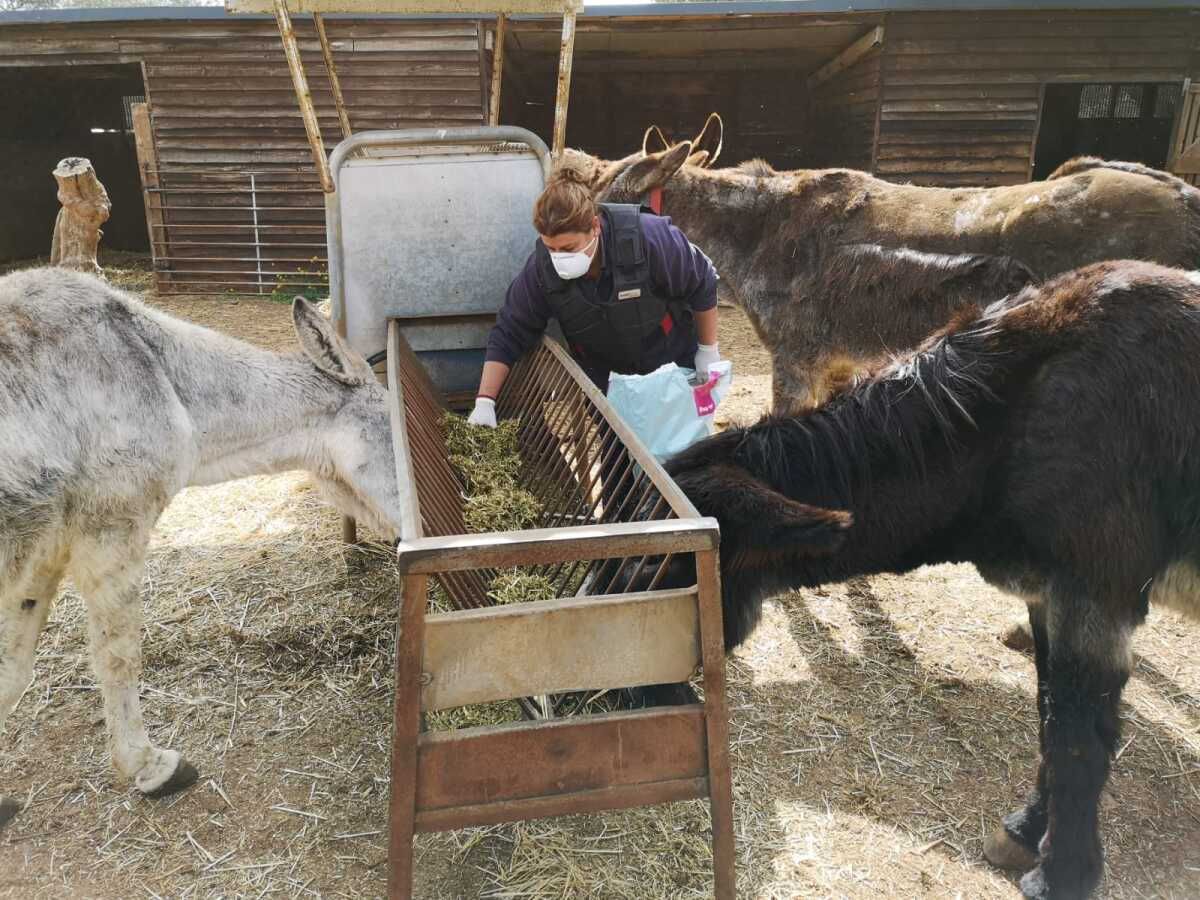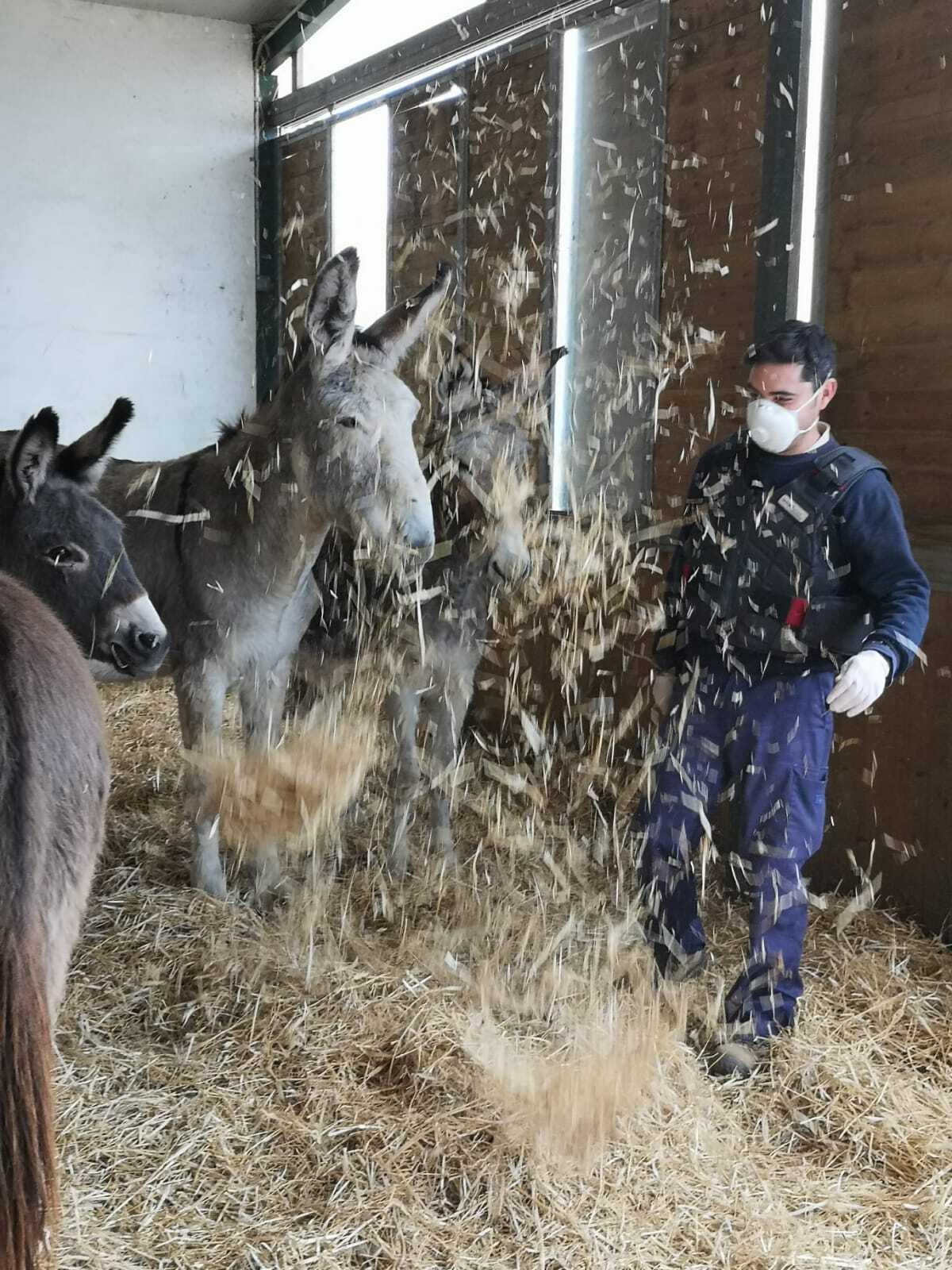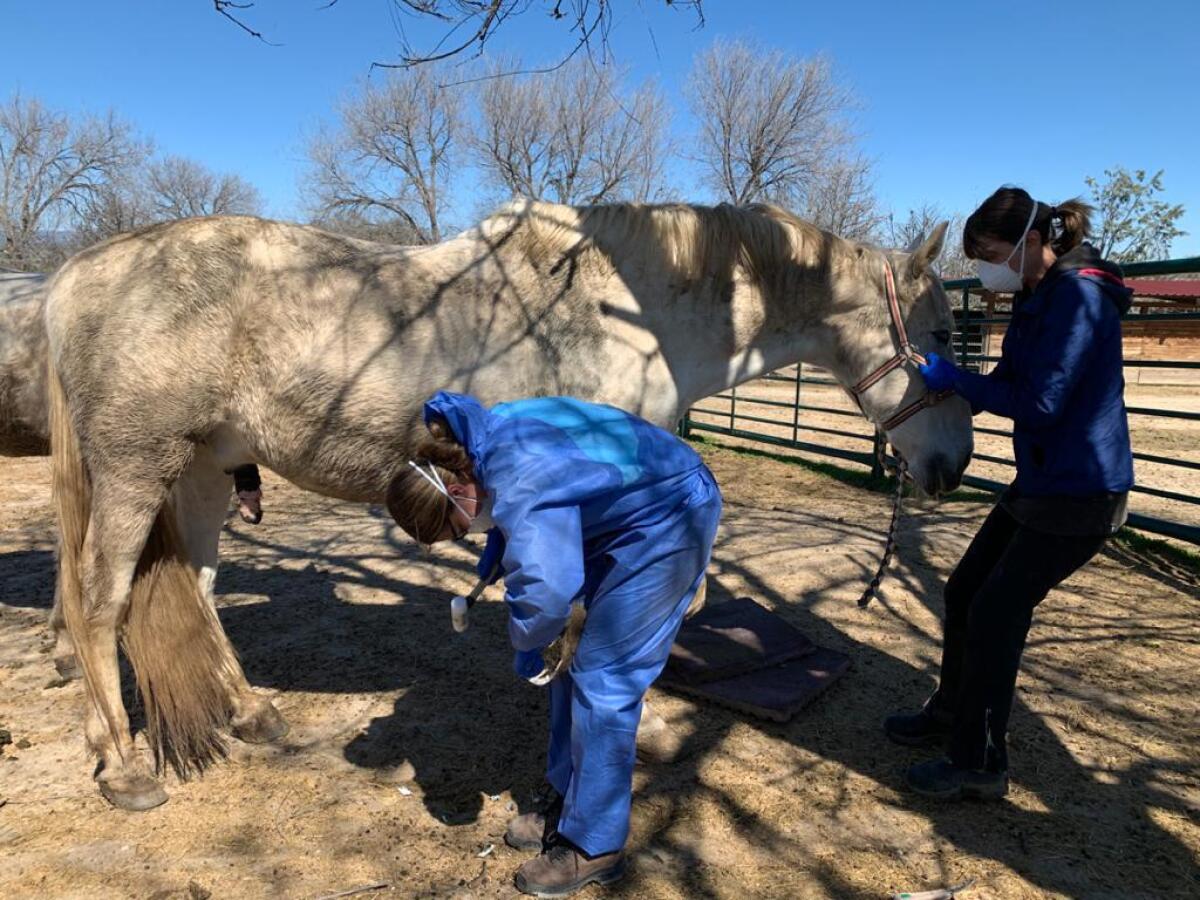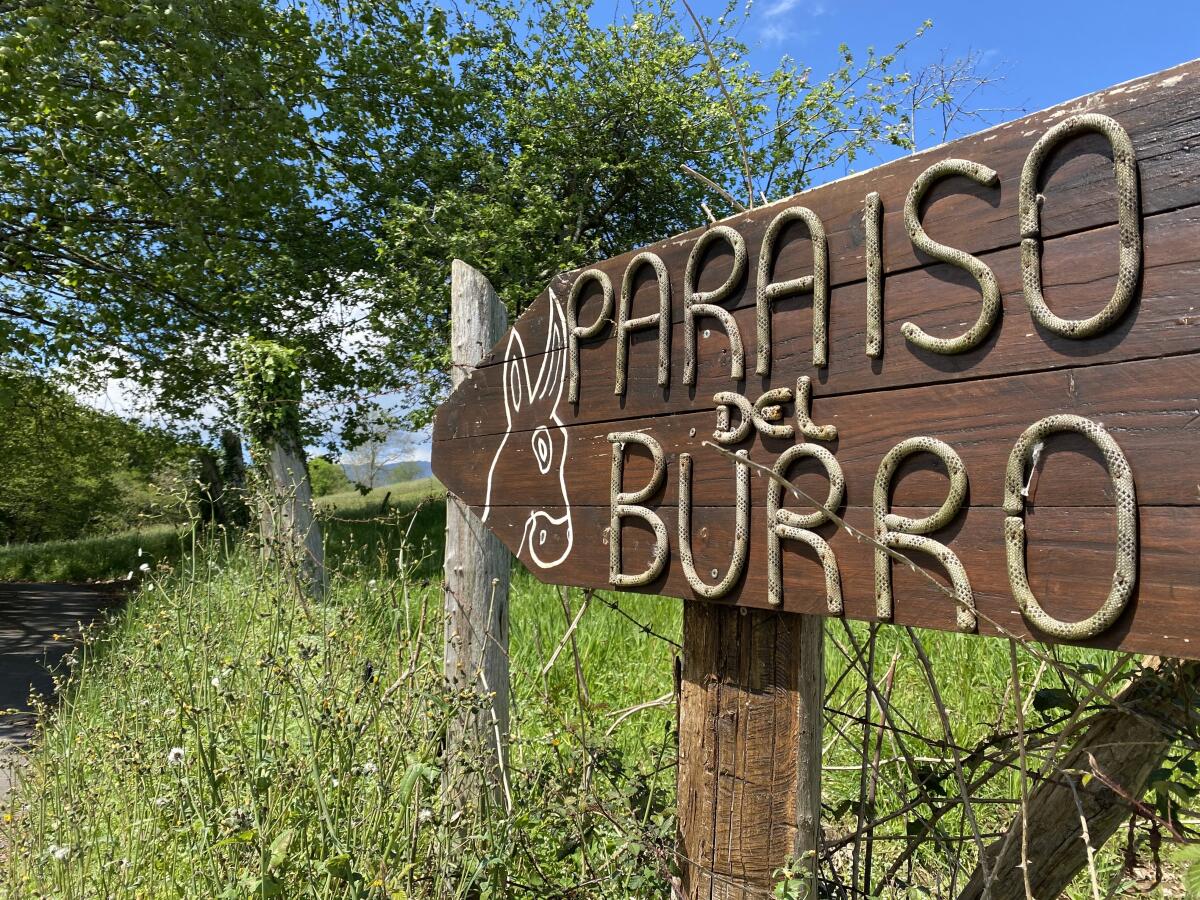Coronavirus crisis exacerbates struggles of animal sanctuaries in Spain

- Share via
OVIEDO, Spain — At El Refugio del Burrito animal sanctuary in Malaga, Spain, the phone kept ringing.
Many people who had adopted burros, horses or other animals had fallen ill or died because of the coronavirus. Relatives, friends or the sick themselves often called to try to get the four-acre sanctuary to take the animals, but it was already caring for 255 animals and could not provide food and safety for more.
“There are days when I’m afraid to even answer the phone,” said Rosa Chaparro, spokeswoman for El Refugio del Burrito. “We can’t afford more, but we can’t leave them abandoned either.”
The circumstances for many animals and their caregivers are among the many grim situations found in Spain, one of the nations hardest hit by people suffering from COVID-19, the disease caused by the coronavirus, with 200,210 confirmed cases and 20,852 deaths as of Monday.
In other countries as well, the coronavirus has made rescue and protection of animals more difficult, expensive and stressful, among other challenges, officials said.
Alan Knight, chief executive of the International Animal Rescue organization based in Britain, said essential supplies such as food and masks are difficult to find and often extremely expensive, affecting daily operations.
Due to many factors, including that the definition of what constitutes a sanctuary varies widely, it is virtually impossible to keep track of all animal sanctuaries and rescues, officials said.
The International Animal Rescue sanctuaries are accredited by the Global Federation of Animal Sanctuaries, and there are roughly 150 sanctuaries accredited by the federation in the world. The accreditation recognizes high-quality care and facilities for the animals at the sanctuaries as well as high marks for the people looking after them.
“Sadly, thousands more facilities keeping thousands more animals — perhaps even millions — don’t meet such high standards and sadly the animals’ welfare is compromised as a result,” said Valerie Taylor, executive director of the Arizona-based Global Federation of Animal Sanctuaries. “I’m sure there are thousands of so-called sanctuaries all over the world, providing varying levels of care, from shocking to excellent.”
There are more than two dozen sanctuaries in Spain, often caring for farm animals such as cows, bulls, horses, goats, sheep, chickens and pigs. Unlike other animal rescue groups, such as kennels, which often offer temporary protection and slaughter animals when they are not adopted, animal sanctuaries offer rescue, care and shelter until permanent homes can be found for the animals or they die of natural causes.
The sanctuaries depend on donations and other private assistance. Under normal circumstances without the coronavirus restrictions ordered by Spain’s government, many of them receive thousands of visitors annually who leave at least small donations.
The Los Angeles Times will provide around-the-clock updates on COVID-19 from across Southern California and around the world.Tracking the coronavirus in California: latest numbers | Support our journalism with a subscriptionHave a question about coronavirus? Send us your questions here. | You also can sign up for our newsletterSee latest photo galleryCoronavirus updates for April 16-19 are here
Administrators at El Refugio del Burrito said an example of what they are facing involved three donkeys — Canelo, Margarita and Luna — who had been saved from poor conditions on a farm and eventually adopted by a family that took good care of them. The primary caregiver, however, became ill this year from COVID-19 and died. His wife decided to leave Spain and called the sanctuary, which is caring for the donkeys.
In recent weeks, representatives of El Refugio have gone to numerous houses or farms to pick up animals because their owners could no longer care for them.
In addition to the abandonment of animals because their owners have died or become ill, there is a lack of staff and volunteers, a shortage of funds to buy food, and a state of confinement due to the coronavirus that complicates the mobility of veterinarians and animal support services.


Located about 45 miles from the center of Madrid, the Vegan Sanctuary looks after about 300 farm animals, most of which were abandoned because they were sick, injured, had amputations or were so old that their care was no longer affordable.
The sanctuary, which has two staff members, was dependent on nearly 30 volunteers who worked in the shelter. Now, only the two staffers remain on duty because volunteers are prohibited from going to the sanctuary as part of the country’s state of emergency.
“We cannot risk becoming infected,” said Laura Luengo, co-founder of Vegan Sanctuary.
Alma, a 26-year-old mule, was mistreated for years before arriving at the sanctuary months ago, Luengo said. The mule was emaciated and her hoofs were deformed by overgrowth.
“Without us, without volunteers, without permanent veterinarians, who would take care of these animals?” Luengo said.
Until mid-March, when the coronavirus state of alarm began in Spain, groups of volunteers from all over the world were welcomed at El Paraíso del Burro, where they took care of 30 donkeys and mules. Things have changed radically since then.
“Everything has been canceled, nobody has been able to travel and almost half of the people we had have had to return to their countries,” said Marleen Verhoef, founder of the organization in Parres, a community in northern Spain.
Currently, of the sanctuary’s normal group of 20 volunteers, only five people have been able to keep helping during the pandemic.

With the nation’s confinement measures in place, veterinarians are only allowed to assist in cases of extreme emergency, and workers must have documents certifying that they are on staff and have reason to travel to shelters, many of which are located in remote areas.
Animal shelters do not receive any government subsidies and their funding depends solely on donations and assistance from individuals. Many were open to the public and each year received thousands of visitors. Now no one knows when they will be able to reopen.
When the government imposed the state of emergency, Luengo launched an emergency aid campaign to buy hay and feed. She never thought the confinement would last so long, and now the food is dwindling.
“We weren’t prepared for something like this,” she said.
More to Read
Sign up for Essential California
The most important California stories and recommendations in your inbox every morning.
You may occasionally receive promotional content from the Los Angeles Times.











